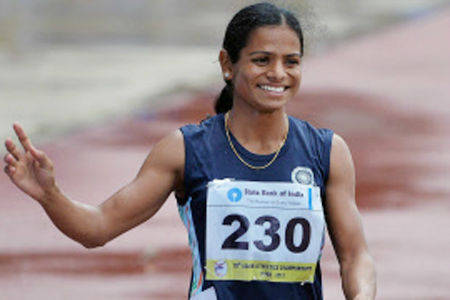Life looked pretty good for Dutee Chand this July.
Having become the first Indian sprinter to reach a final at a global athletics event in 2013, the 18-year-old was already the national champion at 100m and 200m, and an Asian Games bronze medallist.
Such was the excitement about her potential that the Sports Authority of India’s director general Jiji Thomson described her as a “sure shot Olympic medallist” of the future, and a place in a final on her Commonwealth Games debut looked within her reach.
But then, less than a fortnight before the opening ceremony in Glasgow, she “failed” a test that had nothing to do with fitness, form or even doping, and was dramatically withdrawn from the national team.
Like South African 800m sensation Caster Semenya before her, Chand discovered – in bold newsprint – that she had natural levels of the hormone testosterone normally only found in men. It did not take long before reporters were outside her parents’ humble home asking them and her six siblings if she was a boy or a girl.
Dutee Chand’s fast lane to controversy |
|---|
| The third of seven children to a weaver couple from the state of Odisha, Dutee is born on 3 February, 1996 |
| Becomes Indian national under-18 champion for 100m when she clocks 11.8 seconds in 2012 |
| Wins a 200m bronze at 2013 Asian Games and is first Indian to reach a global sprint final at the World Youths, coming sixth in 11.62 seconds |
| Claims 100/200 double at Asian Junior Athletics Championships, prompting the Athletics Federation of India to ask for a gender test in July |
Now, almost three months later, Chand is in limbo, unable to join the Indian team at the 2014 Asian Games, and unwilling to subject herself to the “corrective” treatment (hormone suppression therapy and sometimes even genital surgery) prescribed by the International Association of Athletics Federations (IAAF), International Olympic Committee (IOC) and other leading sports bodies.
“I am who I am,” says Chand with a mixture of defiance and dismay.
Instead of the sprinter she has spent years training to be, she has become the focus of a challenge to sport’s rules on gender, a cause celebre and evidence in a scientific debate about testosterone.
Original Source of this article:
http://www.bbc.com/sport/0/athletics/29446276

